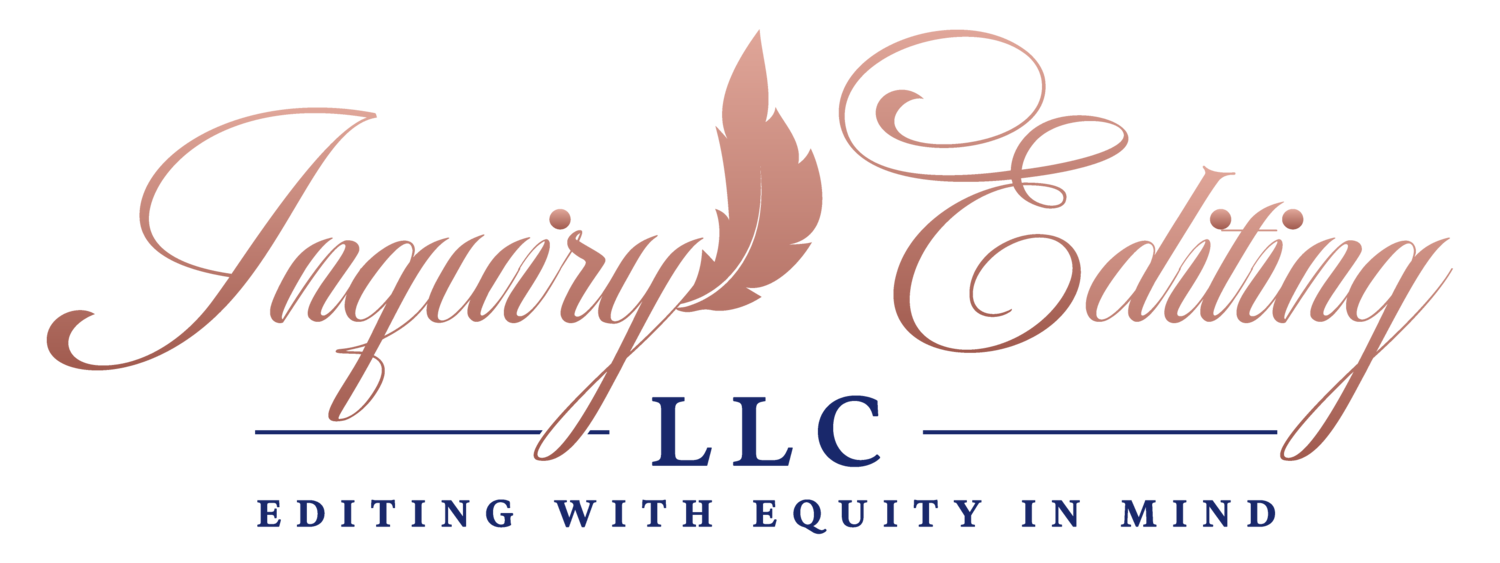Why the name: Inquiry Editing, LLC?
an ode to Toni Morrison… on the eve of her birthday
with thanks to Audre Lorde
Deciding on the name of a company was not an easy decision for me. I thought of using my last name, but that felt too exposed.
Awhile back, I did an exercise where I asked some close friends and associates what I they thought of my leadership abilities. Each person said I asked good questions, provocative questions even. Unfortunately, this surprised me. I say “unfortunately” because I have often – in professional circles and in medical situations – been treated with exasperation for my questions. Perhaps the most unfortunate part of that is the fact that the negative feedback overcame the positive.
It took a while for that data about myself to sink in. It was the emotional experience described in Miki Howard’s “Love Under New Management.” She sings triumphantly after the background chorus, “I’m in love under new management!” Like her, I was “turned completely around” by the somewhat new knowledge that questions, my questions, were powerful and helpful for friends who were writers, either because they were putting pen to paper or because they were becoming the authors of their own lives.
One video clip springs to mind: Toni Morrison being interviewed by Australian journalist Jana Wendt. Wendt asks Morrison when she will write about white people. “You have in your writing certainly marginalized whites,” Wendt says with a small smirk. Morrison’s first response is to blink and tilt her head. Her whole countenance changes. Wendt presses on to finish her question “why are they of no particular interest to you?” Morrison chuckles softly – it looks forced to me, but maybe I’m projecting – and changes the conversation to a question of readership, Black readership. While Morrison speaks, I can hear the growing depth in the pitch of her speech which reaches downward when she flatly intones, “I did not want to have the white gaze in this place.” Wendt presses the matter further asking whether Morrison will maintain her safe place and not incorporate white lives substantially. Morrison demurs a bit, saying “I have done.” Wendt presses the matter further – “mmm? In a substantial way?” – and Morrison actually gives what I consider a mild rebuke (consider all the verbal weaponry in her arsenal): “You can’t understand how powerfully racist that question is, can you? Because you could never ask a white author ‘when are you going to write about Black people?’” Ever the teacher, Morrison instructs Wendt, “even the inquiry comes from a position of being in the center.”
Even the inquiry.
Even the inquiry matters. Morrison’s rejoinder constantly reminds me of how powerful questions can be. They reveal both the worlds of the asker and the respondent. It is imperative that we ask questions, particularly questions that respect the author and their potential audience. Because even the inquiry can a problem if it is the wrong sort.
Another writer, Destiny O. Birdsong, published an essay “Interrobang and Myth” in Poetry (October 2021). In it, she affirms the power of asking questions, especially ones that take seriously Black women’s world-making. I quote her words at length:
I live through the power of Black women’s questions. I bask in the love of Black women who are willing to hold me accountable for the steps I’m making toward the life I’m chasing. But I also desperately need those questions to remind me how monumental each of my actions is, and of the power of my yeses and nos in a world where everyone around me is telling me I don’t have the right to decide; in a world constantly telling me that no matter what I do, I am perceived as little more than an irrational thing, making illogical moves, and asking for more than I am owed.
Though Birdsong describes personal questions, she recognizes overall the power of a well-placed question to move you toward a goal. Her words speak to my desire as an editor, to move writers toward their eventual goals. In honor of Birdsong, I ask people who wish to work with me, “who are you loving in your work?” Writers can answer this question in various ways. During my career, I have had several answers depending on the project. Some of mine would have included: “the mad Black and the Black mad,” “middle school girls sexually harassed in gym class and women raising responsible boys,” “Arab American artists,” “those forging cross-cultural alliances in a complex world,” “Black disabled people,” “myself.”
I am curious about writers’ answers. Regardless of what they say, I know that even the inquiry matters.
